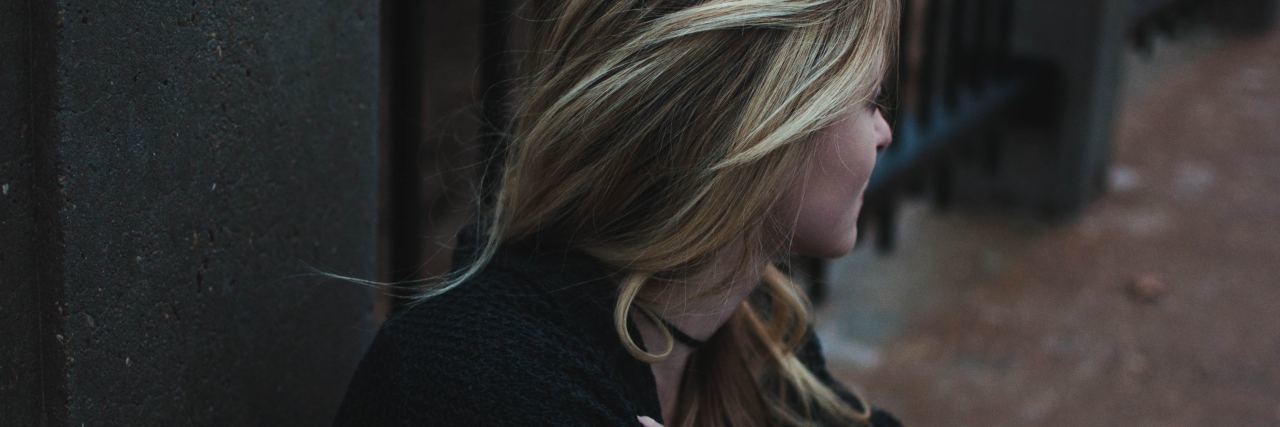The 'Mind-Body Connection' Doesn't Mean a Different Mindset Will Cure My Chronic Pain
Editor's Note
Any medical information included is based on a personal experience. For questions or concerns regarding health, please consult a doctor or medical professional.
Too often, the idea of mind-body connection in chronic pain is used as an excuse for telling us that “it’s all in our heads.” “A positive attitude will help you recover!” they cry, as if our physical diagnoses and surgeries and parts that are the wrong shape are completely coincidental, or as if we are somehow enjoying our suffering. Our invisible pain often lacks visible evidence. Plus, in this modern world, we are taught that our lives are perfectible, and that believing hard enough is all we need to reach for the stars. Thus our pain either doesn’t exist, or we could relieve it if we really wanted to, or both.
Yet our minds and our bodies are obviously linked: we feel physical pain because our bodies report it to our brains. As a biology teacher, I learned that nervous connections, synapses, get stronger with use. They get broader and the levels of neurotransmitters rise, a phenomenon called “synaptic plasticity.” This explains how, when my spine gradually became the wrong shape through kyphosis years ago, the warning circuits of pain from those misshaped discs became embedded, and I cannot stop feeling my pain – even though the shape of my spine has long since been corrected surgically and thus my body no longer needs to warn my brain about it.
So that is one way in which the connection certainly works, because the painful experiences in our bodies are, quite literally, hard-wired into our brains. It also seems undeniable that the connection works the other way in terms of our brains’ effects. Adrenaline, and especially its long-term cousin cortisol, are produced under stress and, over time, can have all sorts of effects on the body. No one knows what causes kyphosis (like scoliosis, but the spine bends to the front) but it is thought to be multi-factorial. I am sure that I was unlucky genetically, as both my parents have had back problems, and that it is no coincidence that my problems started after two pregnancies, which put physical stress on my spine.
I am also sure, however, that many years of experiencing emotional stress played their part too. I first experienced anxiety and depression as a teenager and had had several bouts of them by my mid-30s. A perfectionist from a perfectionist background, I also did a lovely but very busy job as a teacher, and was the main breadwinner while having children. When my circumstances changed, I gave up work to be with my children, but rather than relaxing, I threw myself into voluntary work and various projects in case I became bored. I had a great need to justify my existence beyond “just” having some time with my kids, as if that were not quite busy enough, and looking back, it doesn’t really seem too surprising that six months later my back problems started.
From the many articles I have enjoyed on The Mighty, it appears that a lot of us with chronic pain were not just active members of society before we got sick, but super-active, or super-busy, or super-driven. These oversized lives may well have played a part in why we got sick. I don’t have fibromyalgia, but I know that those who do experience a great deal of chronic pain, and that there is a correlation between the condition and childhood trauma. In many cases, it seems to me that our bodies have in some way been through more than they were built to put up with, and that is why they began to suffer.
But why would they continue to suffer? As I mentioned above, the suffering may be hard-wired in our brains. Realizing that emotional suffering may have been part of its cause makes no difference in how our brains are today. I don’t think any pill or course of counseling about past events will instantly reverse our brains to a ground state of no physical pain, even if emotionally they might provide some relief. We don’t get to say, “It’s fine! We’ve learned our lesson now! Turn back the clock!”
There may even be a reason beyond that. As a biologist, I am bound to wonder what the evolutionary advantage of hurting day after day might be? Why can’t my brain rewire back a bit quicker, for goodness’ sake? Perhaps it needs to take a long time. I still default to doing far too much every time I have a halfway good day and I know I’m not alone in that. Perhaps the lesson, for some of us, needs to be prolonged on some kind of metaphysical level. We need that reminder to be very nice to ourselves. It may take a long time to physically calm down those synapses in our pain circuits, because, for whatever reason, they had a real battering earlier in our lives and we may still be too inclined to push them when we can.
So, in summary, our minds have probably played a significant part in how we ended up with the bodies that we have, but that does not mean that a different mindset can instantly change our bodies. Learning to relax, and to manage our stress, and be careful about where we expend our energy is a very long process. It will hopefully help with our pain in time, but no one should think less of us – including us! – if our bodies carry on being in pain for longer than society thinks is acceptable.
Photo by Aricka Lewis on Unsplash

